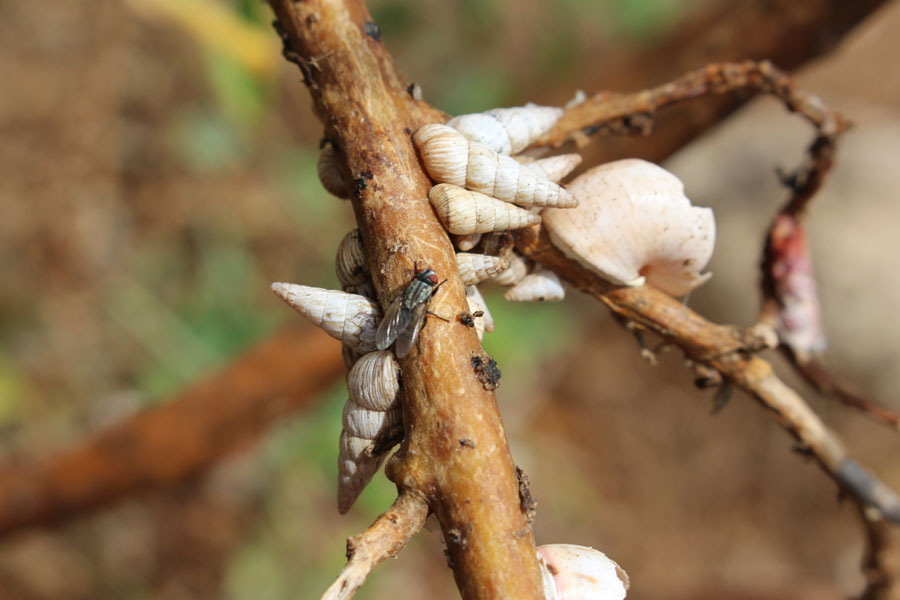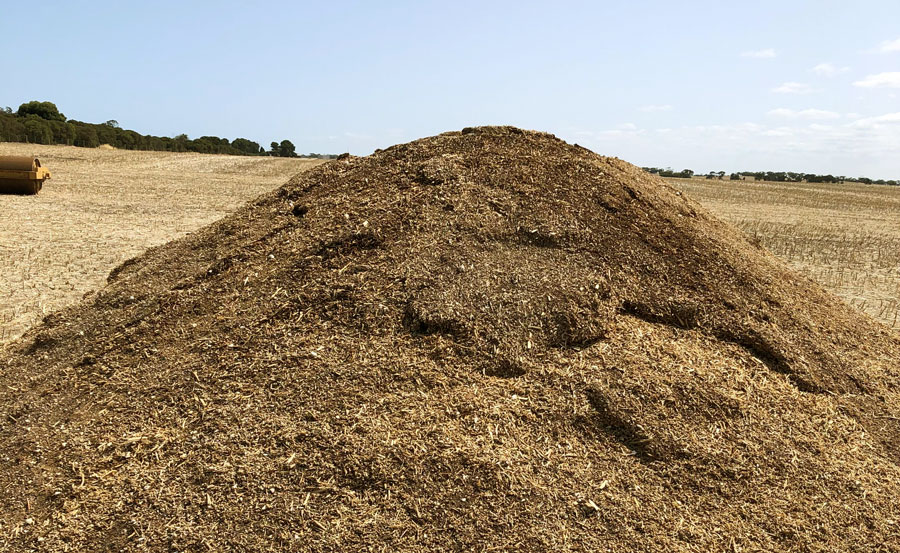Key points
- A parasitic fly was introduced in the early 2000s to South Australia to control pointed snails, but failed to spread
- New research, with Moroccan scientists, has identified more efficient parasitic fly strains for pointed snail control
Land snails can be problematic contaminants in Australian crops as they have a habit of climbing to higher ground as temperatures rise, often congregating in grain heads in spring and being harvested with the grain. These snails cost growers millions of dollars annually through cleaning and grain downgrading.
While bait and mechanical methods can reduce snail populations, management often requires ongoing effort, as the snails are resilient. There is no ‘silver bullet’, but a possible new control has emerged in the form of a biocontrol agent, the Moroccan fly Sarcophaga villeneuveana.
A biological control program for pointed snails (Cochlicella acuta) was instigated by CSIRO and the South Australian Research and Development Institute (SARDI) in the 1990s, with investment from GRDC. A fly parasitoid from France, Sarcophaga villeneuveana (formerly S. penicillata), was introduced on the Yorke Peninsula in SA in the early 2000s.
This fly lays its larvae on host snails. The larvae then enter the shell and feed on the snail, killing it. Although successfully established in a small area, S. villeneuveana has spread little in the past 15 years and parasitisation levels remain low. Researchers are now looking to see if another strain could be more effective against these snails.
Moroccan flies are best
By teaming with Cadi Ayyad University in Morocco, and with funding from GRDC, CSIRO and SARDI, researchers compared strains of the fly S. villeneuveana (see image below) from various regions (France, Morocco and Spain) and their hybrids to the now-established Australian fly strain, through work at the CSIRO European Laboratory in Montpellier, France.
Thousands of Australian pointed snails were sent to France, where they were offered to the different fly strains, and the results are promising. Under laboratory conditions, the Moroccan fly and the Moroccan x Spanish hybrid fly parasitised more C. acuta than did the Australian fly. This indicated that other fly strains may be more efficient at parasitising C. acuta than the fly strain already established, and that further field introductions could help to control C. acuta.
As pure Spanish flies performed poorly and the French and Moroccan populations of S. villeneuveana were shown to be the most genetically different, the decision was made to focus further research on the Moroccan fly.

Parasitic fly (Sarcophaga villeneuveana) with pointed snails (Cochlicella acuta) in the field. Source: Yassine Fendane, Morocco. Photo: CSIRO
Host-specificity testing
Under Australia’s biosecurity laws, biological control agents such as these flies must undergo strict testing and assessment before being released from quarantine.
SARDI obtained an import permit from the Australian Department of Agriculture, Water and the Environment for multiple shipments of S. villeneuveana from Morocco into its quarantine facility. The first shipment of the Moroccan strain was received in January 2020 and a colony was successfully established.
Six Australian native and five exotic snail species were collected from regional SA and WA for host-specificity testing. Testing of the Moroccan strain of S. villeneuveana is now in progress. Depending on the results, an application for a release permit will be made to the Department of Agriculture, Water and the Environment. If successful, SARDI will coordinate the introduction and field release of the flies.

Mountain of pointed snails (Cochlicella acuta) mechanically separated during canola harvest, South Australia. Photo: CSIRO
More information: Dr Valerie Caron, CSIRO, 02 6218 3475, valerie.caron@csiro.au

























































